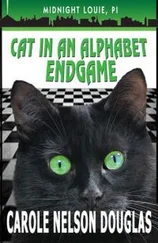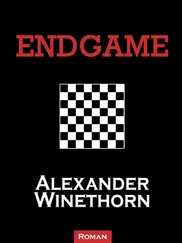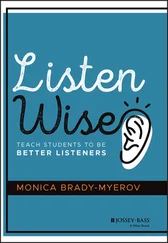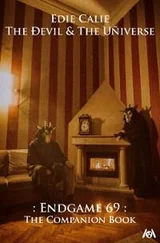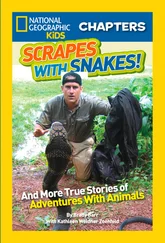In the fourth round, Bobby became involved in a 108-move extravaganza, a chess ultra-marathon that stretched to more than seven hours. In the contest he was pitted against Hans Matthai, a German immigrant to Canada. The game, which turned out to be the longest of Bobby’s career, ended as an interesting draw.
After the game was drawn, he wondered if there’d been anything he’d overlooked. There was just something about the position, an echo of an idea distantly heard. Could he have established a won game, even at the point just before it was drawn?
That night, in a deep but restless sleep, a dream came to him and the position appeared over and over again—seemingly hundreds of times. Just before waking, the solution came to Bobby as a kind of apparition. There was a win there.
Bobby woke and sat bolt upright. “I’ve got it!” he said aloud, not knowing that anyone else was in the room. Mrs. Hornung had just tiptoed into the bedroom to wake Bobby and tell him breakfast was ready. She witnessed his epiphany. Still wearing his pajamas, he bounced barefooted into the living room to where he knew there was a chess set ready for action and began working on the endgame that he’d struggled with the previous day. “I knew I should have won!” he fairly screamed.
Freud held that dream content usually consists of material garnered from incidents, thoughts, images, and emotions experienced during or preceding the day of the dream. Some players in the midst of a tournament do dream about their games that night, and in these nocturnal reveries some actually solve an opening trap, an endgame finesse, or some other aspect that’s been troubling them, waking with a fresh and practical idea. Former World Champion Boris Spassky once said that he dreamt about chess, and David Bronstein, a World Championship candidate, talked about playing whole games in his sleep—ones he could reproduce the next morning. Mikhail Botvinnik claimed that during his World Championship match with Vasily Smyslov, he awoke one night, walked naked to his board, and played the move that he was dreaming about in his adjourned game.
Dreaming about chess didn’t happen often with Bobby. But when it did, the result was always something he could use in a future game, or the explanation of what he could have done in a lost or drawn game. In one interview he said that he most often dreamt about detective stories, which could be intricate games in themselves. Since chess had become such a motivating force in his life, he might have been incapable of dreaming about the game, or any game, except in symbolic form—that is, his psyche might have automatically defaulted to characters instead of pieces, plots and counterplots instead of variations on the board, murders in place of checkmates.
Bobby’s last-round draw against Frank Anderson, the Canadian champion, was a nail-biter … literally. When he wasn’t gnawing on the fingers of his left hand, he began biting his shirt, actually chomping pieces out of it and leaving holes.
He finished with a score of 7–3, tied for second place, a point behind first prize, and he won $59, which he pocketed without revealing his windfall to his mother.
Larry Evans won the prize as First Canadian Open Champion. Knowing that Evans had a car and was driving back to New York, Bobby asked for a ride. Evans was kind enough to agree. Bobby paid no attention to the stunning scenery or to Evans’s equally stunning wife, who sat in the backseat to allow the boy to sit up front. Instead, during the entire eight-hour trip, Bobby plied the champion with questions: “Why do you play the Pirc, and against Anderson?” “Did Sherwin have winning or drawing chances against you? How?” “Didn’t Mednis have a win against you? Why did he accept the draw? He could have made the time limit.” Evans recounted, “I had no idea that I was talking to a future world’s champion, just a very young master with great intensity. It was the beginning of a long and sometimes turbulent friendship.”
A week after he returned from Canada in August, Bobby bought a ticket to a night baseball game at Ebbets Field to see his beloved Brooklyn Dodgers play the Milwaukee Braves. He wasn’t disappointed: not only did the Dodgers win, but he was treated to a spectacle courtesy of Jackie Robinson. One of the great base stealers, Robinson danced around second base to worry and nettle the pitcher; when the pitcher tried to throw him out, the ball went over the head of the second baseman and Robinson sped home to score a run.
Bobby was feeling grown-up, mainly as a result of his summer travels to New Jersey, Philadelphia, Oklahoma, and Montreal, but also because of the accolades he was receiving and his growing status in the chess world. He was thirteen. If he could defeat adults at chess, why shouldn’t he be treated as an adult? He asked his mother if she’d stop coming to the chess club to take him home at night. It embarrassed him. “OK,” she said, “I’ll stop coming, and you can come home by yourself, but only on two conditions: You must be home by no later than ten p.m. on a school night and no later than midnight on a weekend night, and you must learn jujitsu to defend yourself.” Regina didn’t want Bobby to be mugged or hurt in a half-deserted subway station as he worked his way alone at night from Manhattan to Brooklyn. Bobby reluctantly agreed to the terms of the deal. As it developed, he never took a jujitsu lesson, though. Regina discovered that lessons would cost a minimum of $8 an hour—money she just didn’t have. Their agreement had been made, however, and from that time on Bobby went home by himself. The only untoward incident he had was that someone once stepped on his newly polished shoes—on purpose , he said.

“ Me llamo Robert Fischer.”
During his first weeks in high school, right after he returned from Montreal, Bobby had not studied the introduction to his Spanish text, El Camino Real , had failed to attend two of his classes, and now was faced with his first ten-question quiz. Despite his trip to Cuba and his attempt to speak pidgin Spanish, he couldn’t translate or come up with the answers to such questions as “Where is the train station?” or “How much does the banana cost?” so he only answered six of the questions—all incorrectly—and left the others blank.
In the Fischer household failing a language exam was a major infraction. In and out of college, Regina had formally studied Latin, Hebrew, Russian, German, French, and Spanish. She was fluent in many of these tongues (and got by in Yiddish) and was continually taking language courses in adult education centers to sharpen her skills. Joan took Spanish and German in high school and was adept in both. “Industry!” Regina yelled at Bobby, with the not-so-subtle implication that if he spent just a fraction of the time on his studies that he devoted to chess, he’d be a stellar student. She continually emphasized to him the importance of knowing other languages, especially if he intended to play chess in foreign lands. He understood. But to accelerate his progress, she began to speak to him in Spanish, coaxed him to take up his text, and tutored him, and within a short while he was receiving high grades. Eventually, he became fluent in Spanish.
Erasmus Hall High School in Brooklyn was one of the largest in New York and one of the oldest in the nation. With more than five thousand students, it was a factory of learning. Entering in the fall of 1956, Bobby felt comfortable there, although much less so than at Community Woodward. He later said that at Erasmus he was adorned with a cloak of anonymity: “As practically nobody in the school played chess, the other students did not know I was a chess player, which suited me fine, and I took care never to say anything about it either.” At least that’s what Bobby thought . The other students did know who he was. Indeed, it was difficult to not take notice of him: The New York newspapers regularly ran stories and photos of the prodigy; he gave several simultaneous exhibitions that drew publicity; he sparkled out from the cover of Chess Review; he even appeared with Arlene Francis on NBC’s Home show. As for his classmates and their lack of acknowledgment, Bobby said, “I didn’t bother them and they didn’t bother me.” He seemed unaware that fellow student Barbra Streisand, the future singer, had a secret schoolgirl crush on him. She remembered that “Bobby was always alone and very peculiar. But I found him very sexy.” Bobby’s remembrance of Streisand? “There was this mousey little girl …” His teachers, at least some, were annoyed by his aloofness and lack of interest in the lessons at hand.
Читать дальше
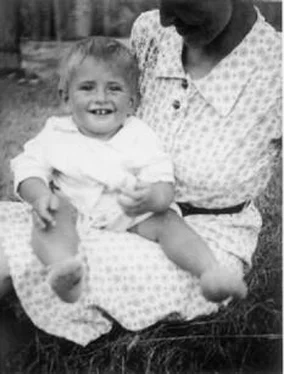


![Антон Текшин - EndGame [СИ]](/books/394477/anton-tekshin-endgame-si-thumb.webp)
